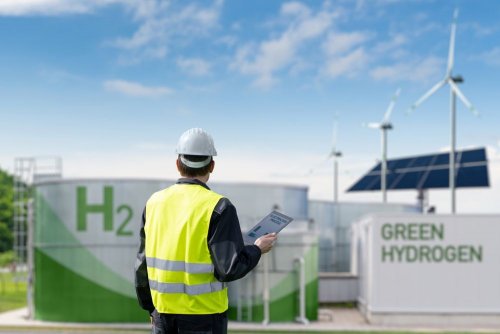NASA is looking for partners to develop the technologies needed to create a new generation of low-emission single-body airliners that will hit the market in the 2030s.
The space agency intends to finance one or more projects to create, test and fly a large-scale demonstrator, reports NASA.
The agency's Sustainable Flight Demonstrator (SFD) project aims to reduce carbon emissions from aviation and ensure US competitiveness in the high-demand aircraft design industry of single-body commercial airliners. These aircraft are the most frequently used by most aircraft fleets, and they also account for almost half of the world's aviation emissions.
"Since its inception, NASA has partnered with industry to develop and implement innovative aeronautical technologies — and to share them with the world," said NASA Administrator Bill Nelson. "Now, with this ambitious new project, we are once again teaming up with US industry to begin a new era of cutting-edge improvements that will make the global aviation industry cleaner, quieter and greener."
The article noted that any new aircraft and technologies developed under this project will help the US achieve zero carbon emissions from aviation by 2050, which is one of the country's environmental goals.
NASA plans to complete the project's testing by the end of the 2020s so that any new environmental technologies can be validated and inform industry decisions about the next generation of single-aisle aircraft that will hit the market by the 2030s.
"Global air mobility will continue to grow at a steady pace in the coming years, and single-aisle aircraft will continue to carry the majority of that passenger traffic," said Bob Pierce, NASA's deputy administrator for the Aeronautics and Space Administration. "By working with industry, NASA intends to seize this opportunity to meet our aggressive environmental goals while maintaining the global leadership of the US aerospace industry."
The announcement explained that NASA plans to select at least one industry partner in early 2023 for a space act funding agreement with the agency's Armstrong Flight Research Center in Edwards, California. Such an agreement would provide funding and access to NASA equipment and expertise. The agreement will draw on the knowledge and experience of the private industry, with the awardee providing a proposed technical plan and contributing significantly to the project's funding.
For this type of agreement, NASA will not purchase aircraft or any other equipment, as the goal is to develop new and innovative technologies and capabilities. Industry partners will design, build, test and fly the large-scale demonstrator, and NASA will receive ground and flight data. The agency and industry teams will be able to use this information to verify the airframe configuration and related technologies.
The flight project is an activity within NASA's Integrated Aviation Systems Program and is a key element of the Sustainable Flight National Partnership, which focuses on the development of new sustainable commercial vehicle technologies.
We will remind, the free aviation of China will focus on the green transition industry.
As EcoPolitic previously reported, NATO joined the wars on climate change and stated ambitious goals.





